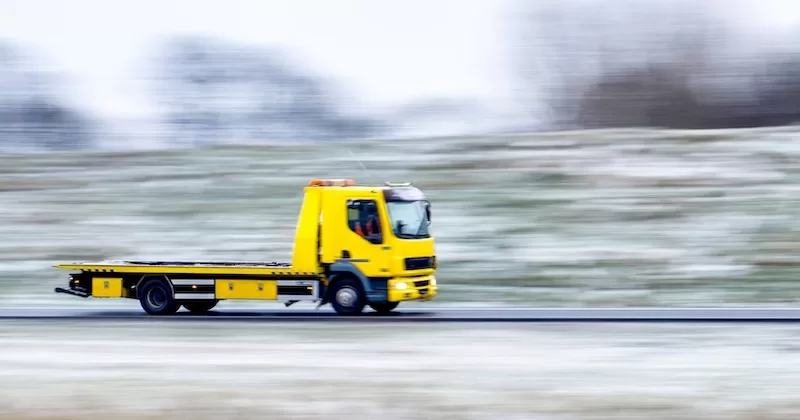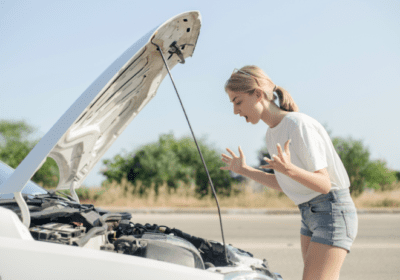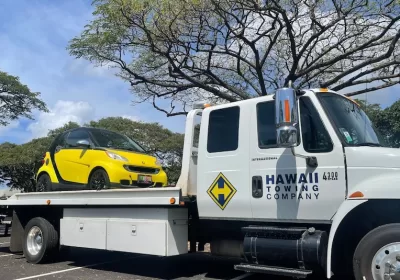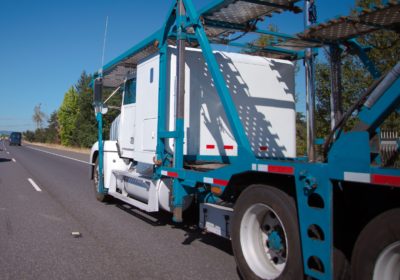Innovations Reshaping Emergency Assistance
In an era where technology transforms industries at breakneck speed, even the seemingly traditional world of tow trucks isn’t immune to innovation. These essential vehicles, once relied upon solely for their muscle and towing prowess, are now evolving into sophisticated machines equipped with cutting-edge technology. From advanced safety features to eco-friendly adaptations, the future of tow truck technology promises to revolutionize roadside assistance as we know it.
The Evolution of Tow Trucks: From Past to Present
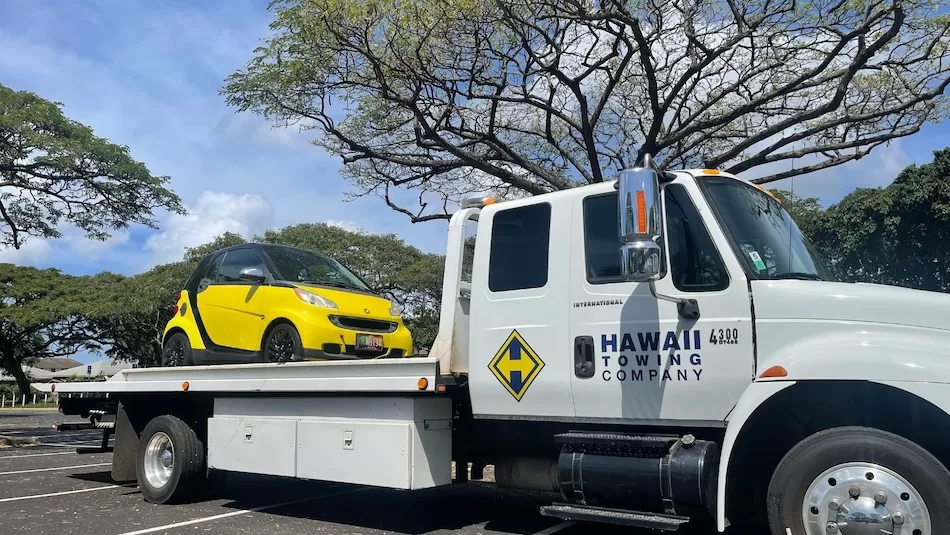
Tow trucks have played a pivotal role in the transportation landscape, evolving significantly from their early beginnings. Initially designed for sheer mechanical strength and reliability, early models were robust and utilitarian, built to navigate challenging terrains and haul heavy loads effectively. These vehicles were essential for rescuing stranded motorists and clearing accident scenes, providing critical support in times of vehicular distress.
As engineering techniques advanced and materials improved, tow trucks underwent substantial refinements. Innovations aimed at enhancing towing capacities and operational efficiency emerged, marking a shift towards more specialized functionalities. These improvements not only bolstered the vehicles’ ability to handle diverse towing tasks but also contributed to safer and more reliable roadside assistance across varying environmental conditions.
The Technological Leap: Modern Innovations in Tow Trucks
The integration of technology into tow trucks marks a significant leap forward. Today’s vehicles boast a range of advanced features aimed at improving safety, efficiency, and overall effectiveness:
Telematics and GPS Tracking
Modern tow trucks are equipped with sophisticated telematics systems that allow operators to monitor vehicle performance, location, and driving behavior in real-time. GPS tracking enables dispatchers to identify the nearest available truck quickly, reducing response times and improving service delivery.
Automated Vehicle Location (AVL) Systems
AVL systems further streamline operations by automatically routing tow trucks to the precise location of a breakdown or accident. This automation minimizes human error and ensures prompt assistance for motorists in distress.
Enhanced Safety Features
Safety remains paramount in the towing industry. Newer tow trucks come equipped with advanced safety technologies such as collision avoidance systems, rear-view cameras, and automatic braking systems. These features not only protect tow truck operators but also enhance the safety of other road users during recovery operations.
Electric and Hybrid Tow Trucks
As the world embraces sustainability, tow truck manufacturers are exploring electric and hybrid alternatives to traditional diesel-powered vehicles. Electric tow trucks offer reduced emissions and quieter operation, making them more environmentally friendly and suitable for urban environments.
The Role of AI and Robotics in Towing Operations
Artificial Intelligence (AI) and robotics are reshaping towing operations in remarkable ways:
AI-Powered Dispatch and Logistics
AI algorithms analyze historical data and current traffic conditions to predict breakdown hotspots and optimize dispatch schedules. This predictive capability ensures efficient resource allocation and faster response times during peak demand periods.
Robotic Towing Systems
Emerging robotic towing systems are designed to autonomously hook up and tow vehicles without human intervention. These robots use sensors and cameras to navigate complex environments and securely transport vehicles to designated locations. While still in development, robotic tow trucks hold the potential to revolutionize the towing industry by enhancing operational efficiency and reducing labor costs.
Challenges and Considerations for Future Tow Truck Technology
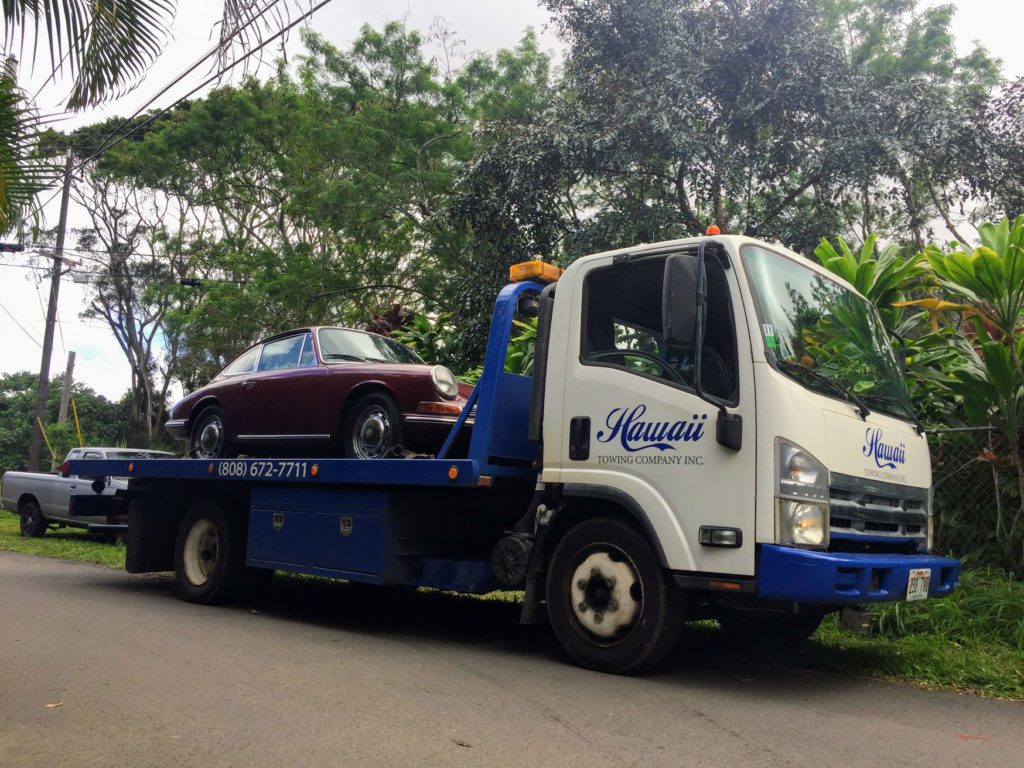
As tow truck technology progresses into the future, several challenges and considerations must be addressed to maximize its potential benefits. One significant hurdle is the cost associated with integrating advanced technologies into tow trucks. While innovations like AI, robotics, and electric propulsion promise efficiency and sustainability, they often come with high initial investments that may pose financial barriers, particularly for smaller towing companies.
Furthermore, the adoption of new technologies requires ongoing training and adaptation among tow truck operators. Ensuring that personnel are adequately skilled in handling AI-driven dispatch systems or operating robotic towing equipment is essential for maximizing safety and operational effectiveness. Additionally, regulatory frameworks need to evolve to address the implications of autonomous and electric tow trucks, including safety standards, liability issues, and operational guidelines. Clear and comprehensive regulations will be crucial in fostering widespread adoption while maintaining public trust in the capabilities of future tow truck technologies.
Regulatory and Legal Frameworks
As autonomous and AI-powered tow trucks gain traction in the industry, the need for robust regulatory and legal frameworks becomes increasingly apparent. These vehicles represent a significant shift in towing operations, leveraging sophisticated technologies to improve efficiency and safety. However, with innovation comes the imperative to establish clear guidelines governing their deployment and operation. Safety standards must be rigorously defined to ensure these vehicles operate reliably and securely, minimizing risks to both operators and other road users.
Moreover, addressing liability issues is paramount. Determining responsibility in the event of accidents involving autonomous tow trucks requires careful consideration of liability distribution between manufacturers, operators, and other stakeholders. Additionally, operational guidelines need to be established to outline proper usage, maintenance protocols, and emergency procedures. By developing comprehensive regulations, authorities can facilitate the safe integration of autonomous and AI-powered tow trucks into existing transportation frameworks, fostering industry-wide adoption while upholding public trust in these innovative technologies.
Looking Ahead: Toward a Smarter, More Efficient Future
Looking ahead, the trajectory of tow truck technology promises a transformative impact on roadside assistance and road safety. AI and robotics are set to revolutionize towing operations, offering enhanced efficiency and reliability in responding to emergencies. These advancements pave the way for tow trucks to integrate seamlessly into smart transportation ecosystems, where they play a pivotal role in optimizing traffic flow and incident management. Embracing sustainable practices further aligns with global initiatives towards reducing carbon footprints, making tow trucks not just responders but contributors to environmentally conscious mobility solutions.
For stakeholders in the towing industry, collaboration is key to realizing this future vision. By working together to address technical challenges, regulatory frameworks, and societal expectations, industry players can harness the full potential of emerging technologies. This collective effort will ensure that tow trucks evolve into safer, more efficient assets on the road, offering motorists and communities alike greater peace of mind in their daily travels.
Enhancing Road Safety with AI-Powered Towing
AI-powered towing represents a significant leap forward in road safety technology, promising enhanced efficiency and effectiveness in responding to roadside incidents. By leveraging artificial intelligence, tow trucks can predict and preemptively respond to breakdowns and accidents, reducing response times and minimizing the risk of secondary incidents. These AI systems analyze real-time data from various sources, such as traffic patterns and vehicle diagnostics, to optimize route planning and deployment strategies. This proactive approach not only improves the overall reliability of roadside assistance but also enhances the safety of both operators and motorists.
Furthermore, AI-powered towing introduces advanced safety features, including collision avoidance systems and automated emergency braking. These technologies mitigate human error and enhance situational awareness during towing operations, significantly reducing the likelihood of accidents. As AI continues to evolve, tow trucks equipped with these capabilities are poised to play a crucial role in creating safer roadways and smoother traffic flow, contributing to a more secure and efficient transportation environment.
Collaborating for a Safer Future on the Road
Achieving a safer future on the road requires collaboration among stakeholders across the towing industry, regulatory bodies, and technology developers. By working together, these parties can address technical challenges and regulatory considerations associated with the deployment of AI-powered towing systems. Collaborative efforts can streamline the integration of new technologies into existing infrastructure, ensuring that AI-powered tow trucks meet rigorous safety standards and operational guidelines.
Moreover, collaboration fosters knowledge sharing and best practices among tow truck operators, enhancing their preparedness to deploy and operate advanced technologies effectively. Training programs tailored to AI systems and robotic towing equipment are essential to equip operators with the skills needed to leverage these innovations safely and efficiently. Additionally, collaborative initiatives can drive innovation in sustainable practices, promoting the adoption of eco-friendly tow truck solutions that reduce environmental impact.
Conclusion
Looking forward, advancements in AI, robotics, and sustainable practices are poised to revolutionize roadside assistance. These innovations promise enhanced efficiency, safety, and a more sustainable approach to towing operations. Stakeholders in the towing industry must adapt to these developments to ensure services meet high standards of reliability and innovation. For expert roadside assistance in Hawaii, contact Hawaii Towing Company Inc. at (808) 672-7711 and experience the future of towing technology today.

